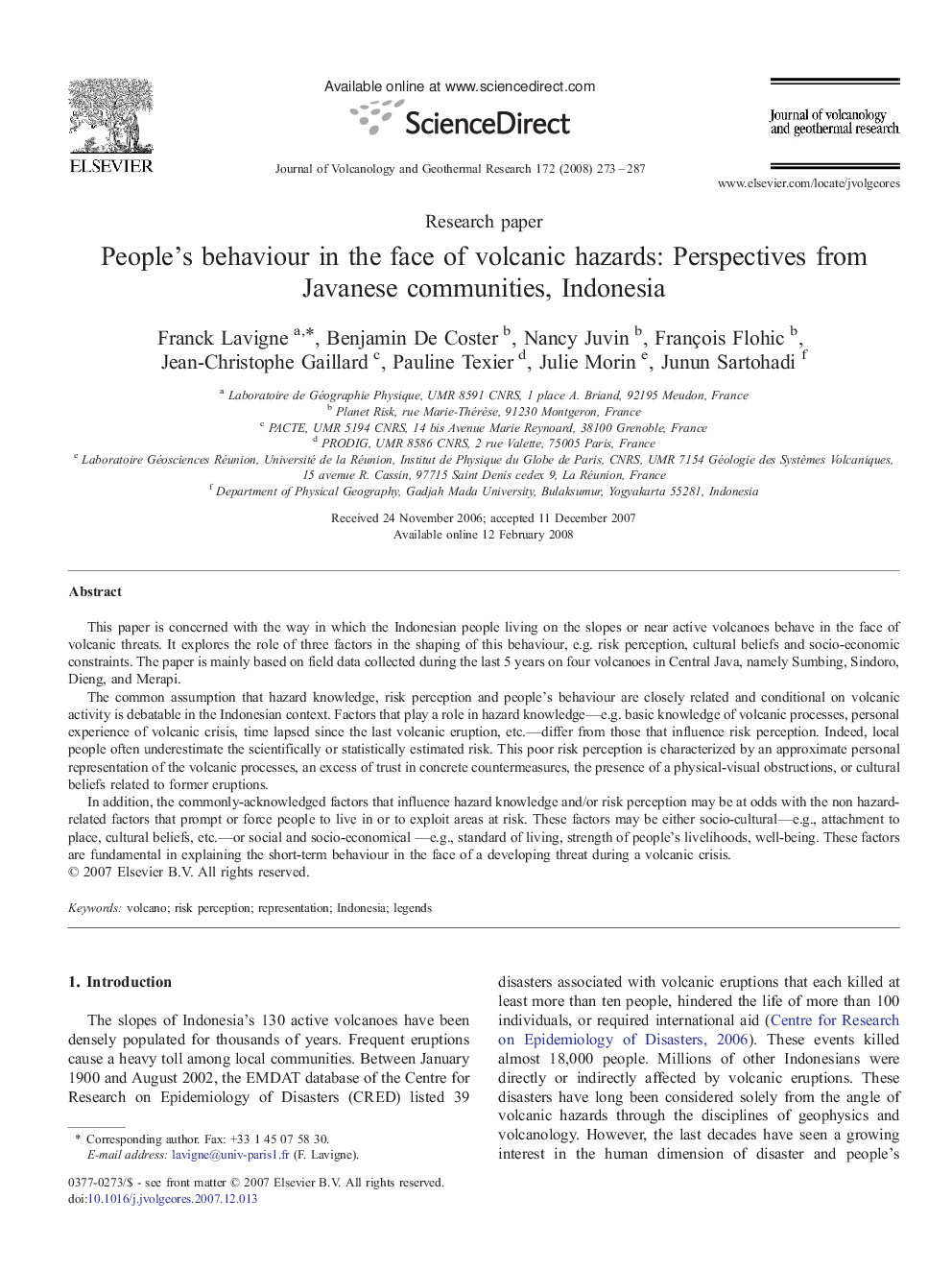| کد مقاله | کد نشریه | سال انتشار | مقاله انگلیسی | نسخه تمام متن |
|---|---|---|---|---|
| 4714552 | 1638449 | 2008 | 15 صفحه PDF | دانلود رایگان |

This paper is concerned with the way in which the Indonesian people living on the slopes or near active volcanoes behave in the face of volcanic threats. It explores the role of three factors in the shaping of this behaviour, e.g. risk perception, cultural beliefs and socio-economic constraints. The paper is mainly based on field data collected during the last 5 years on four volcanoes in Central Java, namely Sumbing, Sindoro, Dieng, and Merapi.The common assumption that hazard knowledge, risk perception and people's behaviour are closely related and conditional on volcanic activity is debatable in the Indonesian context. Factors that play a role in hazard knowledge—e.g. basic knowledge of volcanic processes, personal experience of volcanic crisis, time lapsed since the last volcanic eruption, etc.—differ from those that influence risk perception. Indeed, local people often underestimate the scientifically or statistically estimated risk. This poor risk perception is characterized by an approximate personal representation of the volcanic processes, an excess of trust in concrete countermeasures, the presence of a physical-visual obstructions, or cultural beliefs related to former eruptions.In addition, the commonly-acknowledged factors that influence hazard knowledge and/or risk perception may be at odds with the non hazard-related factors that prompt or force people to live in or to exploit areas at risk. These factors may be either socio-cultural—e.g., attachment to place, cultural beliefs, etc.—or social and socio-economical —e.g., standard of living, strength of people's livelihoods, well-being. These factors are fundamental in explaining the short-term behaviour in the face of a developing threat during a volcanic crisis.
Journal: Journal of Volcanology and Geothermal Research - Volume 172, Issues 3–4, 20 May 2008, Pages 273–287